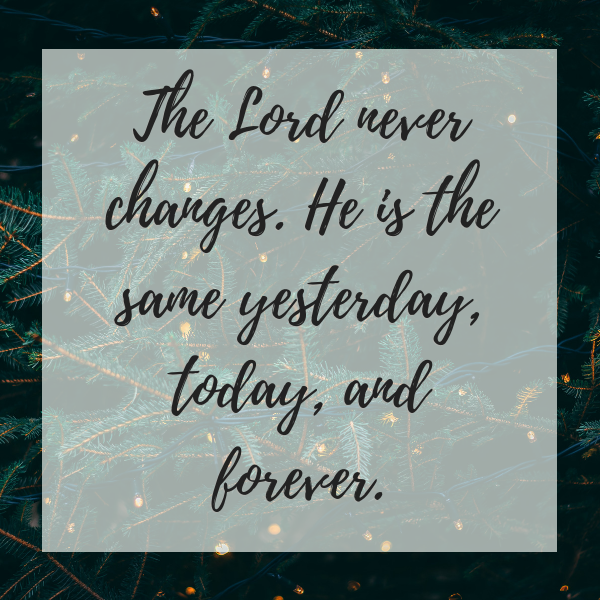
**Some of the links below are affiliate links*, meaning, at no additional cost to you, I will earn a commission if you click through and make a purchase. Read my full disclosure here.**
Over Christmas break I discovered Lynn Austin’s *Restoration Chronicles series, and I fell in love. The series followed some of the minor prophets in the Old Testament as Israel slowly returned from exile in Babylon and rebuilt Jerusalem. I’ve always been a fan of stories, and I love scripture. Put them together, as Austin did with her books, and I am one happy chickadee.
More than the enjoyment I got from reading them, those books fanned a flame in my heart for Jewish culture and sparked the desire to dig deeper into God’s Word.
I’m on a mission to connect the Old Testament to the New–to see how Jesus and His amazing love and grace are woven into the books most people regard as irrelevant now.
The beauty of the Old Testament
While many of us can get into the stories often taught in Sunday school like the Flood, Cain and Able, and the Exodus of God’s people from Egypt, we start loosing speed around the time the law is given. And by the time we get to Leviticus and Numbers, we’ve all but given up on the Old Testament.
It’s nothing but laws.
Or so we say.
But after reading Austin’s series*, God opened my eyes and began challenging me to look for the relationship in those early Old Testament books.
The Old Testament is foundational to better understanding the New Testament and the heart of God.
It’s in these first thirty-nine books that we encounter a God who is creative, holy, and good–a God who loves His people and has a high standard for living, not because He’s vindictive and likes dishing out impossible-to-follow rules. Rather, His laws and instructions to the people of Israel revealed God’s holiness and their need for Him.
The books of the Law are arrows that point us back to our need for God–and yes, I said us, not just Israel.
While these laws about priestly garments, mold, and skin diseases don’t apply to us today, that doesn’t mean we get to skip over those parts of Scripture.It just means that when we get to those hard to read parts we have to be a little more intentional in reading with God.
Seeing Jesus in Leviticus
I found myself challenged to do this recently as I trudged through Leviticus. I’d started reading through the Bible cover-to-cover and was determined to see God’s heart in every passage, to learn something about Him. I did well for a while, until I got to the part of Leviticus where God was addressing how to handle skin diseases in the community.
At that point, I grabbed my pen and scribbled in my journal: Really, God? Skin diseases? How am I supposed to see you in this?
What God showed me next completely changed my perspective and helped me see the Old Testament Law in a new way.
He drew me back to the passage about leprosy in Leviticus 13 about how anyone with the disease was to go to the priest and if he deemed the person to have leprosy, that person was to be kicked out of the community. Every time that person came near people, he or she had to shout, “Unclean! Unclean!”
I didn’t like it. I didn’t like that people with a disease they couldn’t help were sent away from the community to literally watch their bodies rot alone.
“That is like sin,” I felt God’s Spirit whisper to my heart.
“Oh…” was all I could because suddenly a piece of scripture that had never felt relevant before gained new life.
“And I am the high priest who declares them clean when they come to know me.”
Those who live in sin live apart from the community of God. They live with the stench of sin until Jesus heals them and makes them whole again and declares them clean and welcomes them into the community of faith.
Seeing God’s Pursuit in Exodus
The books of the Law are still relevant. That doesn’t mean we have to follow the letter of the Law–we are participants of the new covenant and no longer bound by the old. But we can’t discredit these pieces of the Old Testament either. When we skim through them uninterested or skip over them all together, we miss a piece of God’s heart.
Malachi 3:6 says that the Lord does not change. He is the same yesterday, today, and forever. The God we see in the New Testament is the same God we see in the Old Testament. He is active and loving and gracious, and He relentlessly pursues His people.
We see this pursuit powerfully in Exodus 19 when the Lord delivers the ten commandments to Moses and the people of Israel at Sinai after their departure from Egypt.
The laws and specific instructions given about the tabernacle and priestly garments and festivals all show God is a God of details. He pays attention to even the smallest thing. The laws given here are not meant to confine, but to show Israel–and us–the need for God.
God created the universe and with it He designed life to function a certain way. When man decided we no longer needed God and His ways, that His way wasn’t not good enough compared to what we thought Knowledge offered us, we turned away from that plan. Here in Exodus, the Lord starts to reveal and move us toward right living again.
But it isn’t easy. Israel soon finds that out. They tremble in fear as they encounter of the booming voice of God coming from heaven. When Moses takes too long up on the mountain top, the people grow restless and form an image to worship instead, quickly falling away from their commitment to serve the Lord and follow His way.

What God requires of us isn’t easy for our sinful selves to live out. But God is patient and gracious. He provided the sacrificial system so that His people could atone for their sins. He established the Sabbath to give His people rest and remind them that it is Him they are to put their trust in, not the labor of their own hands. He asked Israel to mark on their calendars four celebrations they were to participate in every year, reminders of God’s faithfulness and provision, and salvation.
No, when I look at Exodus and the other books of the Law, I don’t see laws. I see love.
I see God’s favor poured out on a completely undeserving people.
I see His pursuit as He made Himself and His ways known to His people and called them to follow Him.
I see Him making Himself available and allowing His presence to rest in a man-made tabernacle so that He could commune with His people.
And this is only the beginning.
If you’ve given up on reading the hard pieces of the Old Testament, can I challenge you to give it a second chance? Can I challenge you to give it another go, to read with God and ask Him to show you why these passages are included in the Bible and what they teach about Him?
There’s more here below the surface is we’re willing to sit a while, seek the Lord. After all, this is His story.
Live in His love!

Related: 7 Tips to Help You Enjoy the Old Testament

Thank you